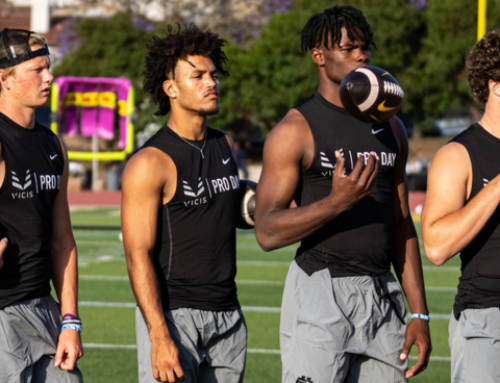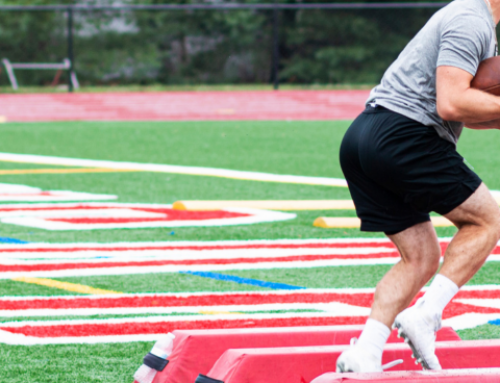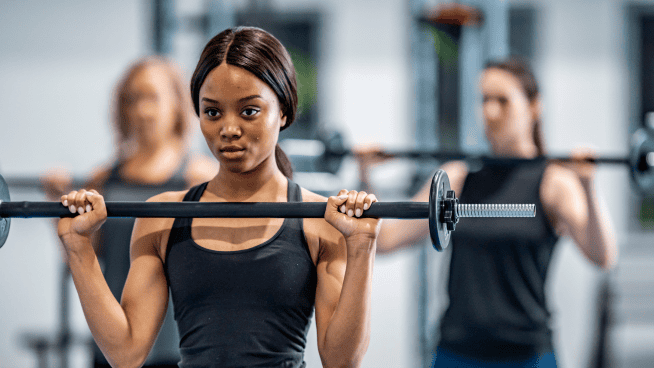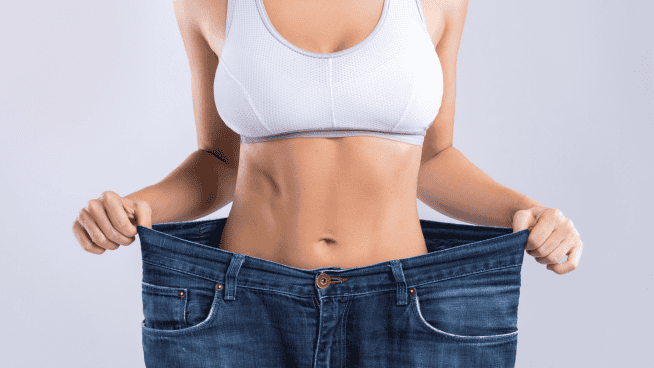Vegetarian Diets for Football Players
Last year, Houston Texans RB Arian Foster caused fans in the Longhorn state to choke a little on their prime rib when he declared himself a vegan. The plan didn’t last long—by November 2012, Foster was “dabbling” in eating chicken. But forgoing meat, eggs and dairy didn’t hurt his game. During his sabbatical from animal products, Foster was fifth in the NFL in rushing and had a league-leading 10 rushing touchdowns.
Admittedly, veganism is extreme for an athlete. But going vegetarian—cutting out meat but not eggs or dairy—can be a healthy option. Your protein sources will either be plant-based (whole grains, legumes, nuts and seeds) or dairy-based.
Below are some creative vegetarian ways for athletes and non-athletes to incorporate protein into their daily diets.
Eggs
A complete protein food with all the essential amino acids, eggs are not just a breakfast staple. They can be combined with other foods throughout the day. Consume whole eggs—not just the egg white, because the yolk contains muscle-building protein; important vitamins, minerals and antioxidants to enhance vision; and vitamin D for strong bones.
Here are some sample egg preparations:
- Hard-boiled eggs. Make several hard-boiled eggs at the beginning of the week and refrigerate them. Serve them chopped up atop salad greens and other vegetables for lunch or dinner, or as a convenient and portable pre-workout snack with fruit.
- Omelets or frittatas. Mix eggs with different veggies—such as potatoes, peppers, onions, spinach, mushrooms, zucchini or eggplant—for a delicious and nourishing omelet or Italian frittata. The eggs supply muscle-building protein, and the veggies have anti-inflammatory antioxidants to aid recovery between workouts, practices and games. Vegetables, rich in vitamins and minerals, also boost the immune system to help prevent colds and flu to keep you in the lineup and not on the sidelines.
Milkshakes
Milk is another muscle-building, complete protein source that also contains bone-building calcium and vitamin D. Blend milk with fruit and nuts for a perfect post-workout beverage or a refreshing post-game recovery drink.
Yogurt, cottage cheese, ricotta, mozzarella, cheddar
Like milk, yogurt, cottage cheese and other cheeses such as ricotta, mozzarella and cheddar are complete protein and calcium-rich foods. Greek yogurt and cottage cheese are higher in protein than other yogurts and cheeses. Yogurt also contains bacteria beneficial to the immune system. Combine yogurt, cottage cheese or other cheeses with fruits and veggies or atop whole grain breads and crackers for a wholesome pre- or post-workout snack or at mealtime.
Cheddar cheese and mozzarella string cheese are also convenient portable foods. An hour or so before practice or a game, boost your energy with cheese, dried fruit such as raisins or prunes, and some protein-rich nuts and sunflower or pumpkin seeds.
Combining nuts and seeds with incomplete grains (lacking some of the essential amino acids) helps make a complete protein meal. Example combos include nut or seed butter on whole grain bread (e.g., natural peanut or almond butter on a whole grain bagel or toast) and whole grain bread containing flax, caraway, sunflower or pumpkin seeds.
Beans with brown rice or whole grain pasta
Mix red or black beans with brown rice (incomplete whole grain protein source) to form another plant-based complete protein meal. Protein-rich lentils, chickpeas and white beans mix well with whole grain pasta (grain with an incomplete amino acid profile) to form another complete vegetarian protein dish.
Whole grain pasta, brown rice, or whole grain bread or whole grain popcorn with cheese
Cheese ravioli is filled with protein-rich ricotta. Other pastas are layered or topped with melted mozzarella or grated Parmesan cheese for complete protein dishes. Melted cheddar cheese on whole grain toast, cheese on whole grain crackers, cheese-topped popcorn, and brown rice mixed with grated or melted cheese are other vegetarian-complete protein meals.
Read more:
RECOMMENDED FOR YOU
MOST POPULAR
Vegetarian Diets for Football Players
Last year, Houston Texans RB Arian Foster caused fans in the Longhorn state to choke a little on their prime rib when he declared himself a vegan. The plan didn’t last long—by November 2012, Foster was “dabbling” in eating chicken. But forgoing meat, eggs and dairy didn’t hurt his game. During his sabbatical from animal products, Foster was fifth in the NFL in rushing and had a league-leading 10 rushing touchdowns.
Admittedly, veganism is extreme for an athlete. But going vegetarian—cutting out meat but not eggs or dairy—can be a healthy option. Your protein sources will either be plant-based (whole grains, legumes, nuts and seeds) or dairy-based.
Below are some creative vegetarian ways for athletes and non-athletes to incorporate protein into their daily diets.
Eggs
A complete protein food with all the essential amino acids, eggs are not just a breakfast staple. They can be combined with other foods throughout the day. Consume whole eggs—not just the egg white, because the yolk contains muscle-building protein; important vitamins, minerals and antioxidants to enhance vision; and vitamin D for strong bones.
Here are some sample egg preparations:
- Hard-boiled eggs. Make several hard-boiled eggs at the beginning of the week and refrigerate them. Serve them chopped up atop salad greens and other vegetables for lunch or dinner, or as a convenient and portable pre-workout snack with fruit.
- Omelets or frittatas. Mix eggs with different veggies—such as potatoes, peppers, onions, spinach, mushrooms, zucchini or eggplant—for a delicious and nourishing omelet or Italian frittata. The eggs supply muscle-building protein, and the veggies have anti-inflammatory antioxidants to aid recovery between workouts, practices and games. Vegetables, rich in vitamins and minerals, also boost the immune system to help prevent colds and flu to keep you in the lineup and not on the sidelines.
Milkshakes
Milk is another muscle-building, complete protein source that also contains bone-building calcium and vitamin D. Blend milk with fruit and nuts for a perfect post-workout beverage or a refreshing post-game recovery drink.
Yogurt, cottage cheese, ricotta, mozzarella, cheddar
Like milk, yogurt, cottage cheese and other cheeses such as ricotta, mozzarella and cheddar are complete protein and calcium-rich foods. Greek yogurt and cottage cheese are higher in protein than other yogurts and cheeses. Yogurt also contains bacteria beneficial to the immune system. Combine yogurt, cottage cheese or other cheeses with fruits and veggies or atop whole grain breads and crackers for a wholesome pre- or post-workout snack or at mealtime.
Cheddar cheese and mozzarella string cheese are also convenient portable foods. An hour or so before practice or a game, boost your energy with cheese, dried fruit such as raisins or prunes, and some protein-rich nuts and sunflower or pumpkin seeds.
Combining nuts and seeds with incomplete grains (lacking some of the essential amino acids) helps make a complete protein meal. Example combos include nut or seed butter on whole grain bread (e.g., natural peanut or almond butter on a whole grain bagel or toast) and whole grain bread containing flax, caraway, sunflower or pumpkin seeds.
Beans with brown rice or whole grain pasta
Mix red or black beans with brown rice (incomplete whole grain protein source) to form another plant-based complete protein meal. Protein-rich lentils, chickpeas and white beans mix well with whole grain pasta (grain with an incomplete amino acid profile) to form another complete vegetarian protein dish.
Whole grain pasta, brown rice, or whole grain bread or whole grain popcorn with cheese
Cheese ravioli is filled with protein-rich ricotta. Other pastas are layered or topped with melted mozzarella or grated Parmesan cheese for complete protein dishes. Melted cheddar cheese on whole grain toast, cheese on whole grain crackers, cheese-topped popcorn, and brown rice mixed with grated or melted cheese are other vegetarian-complete protein meals.
Read more:











